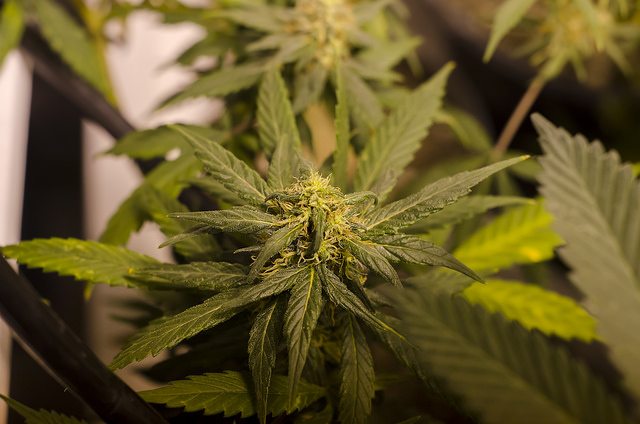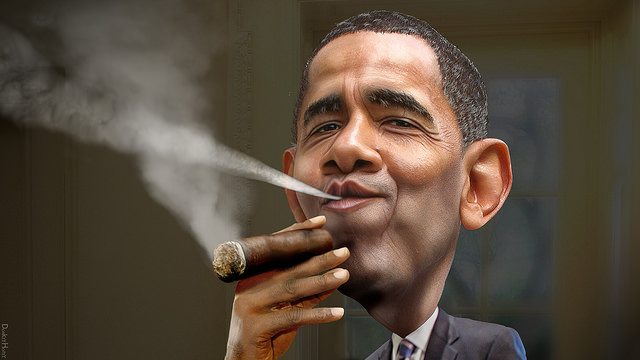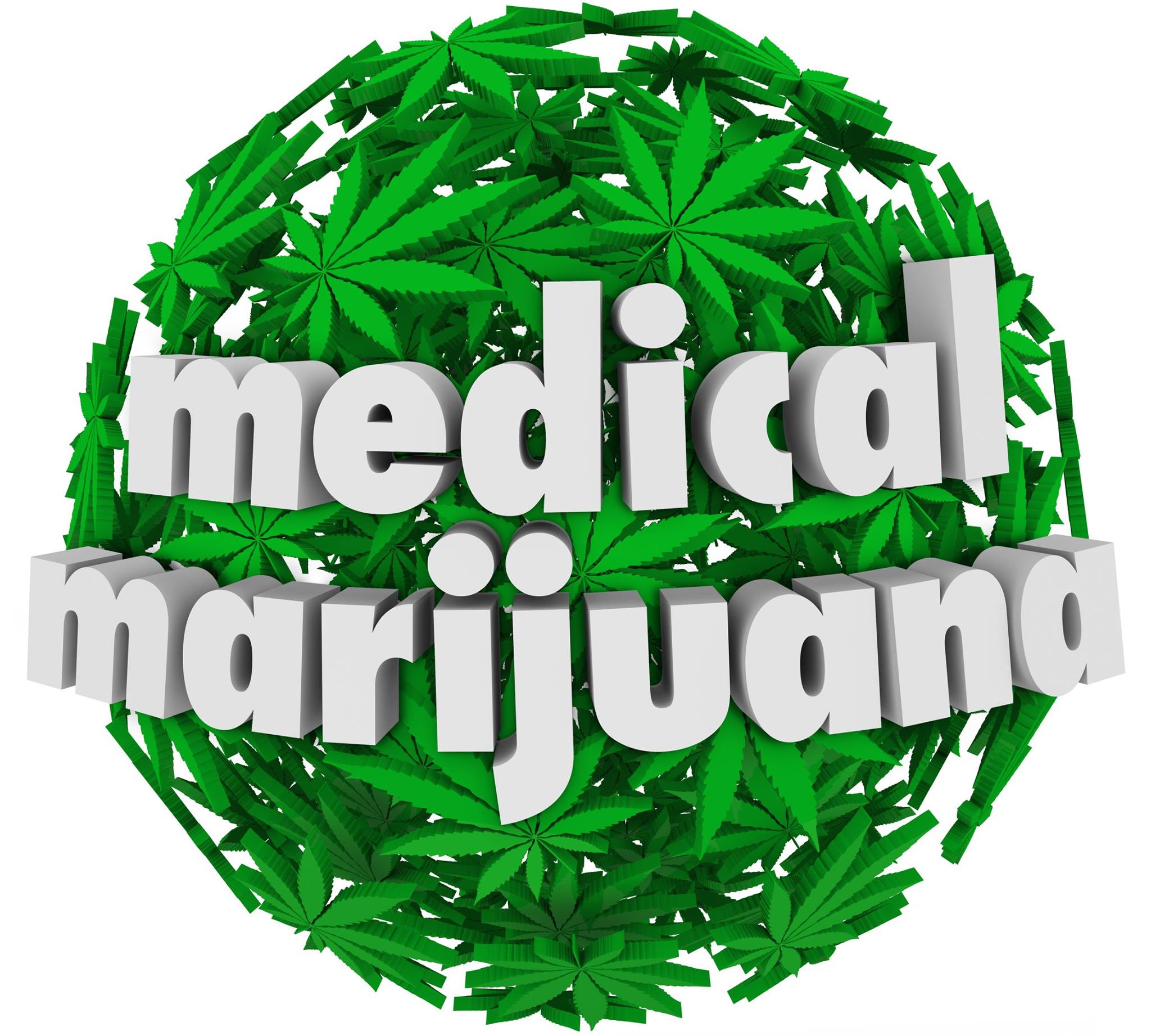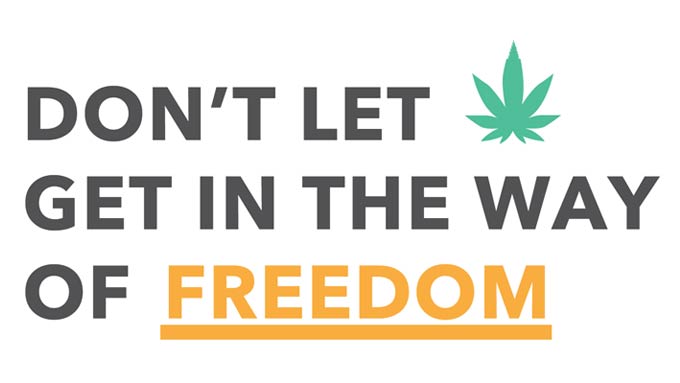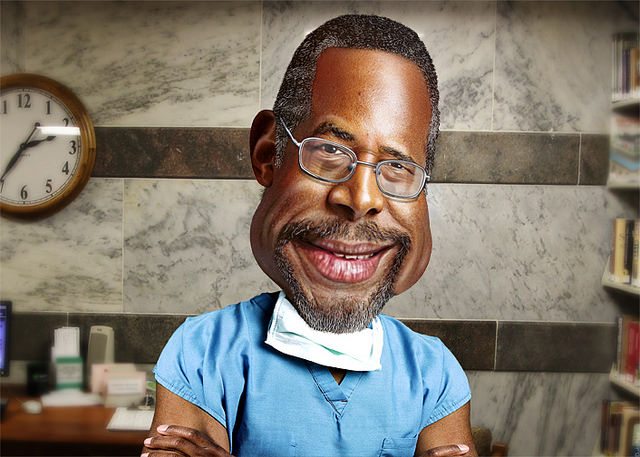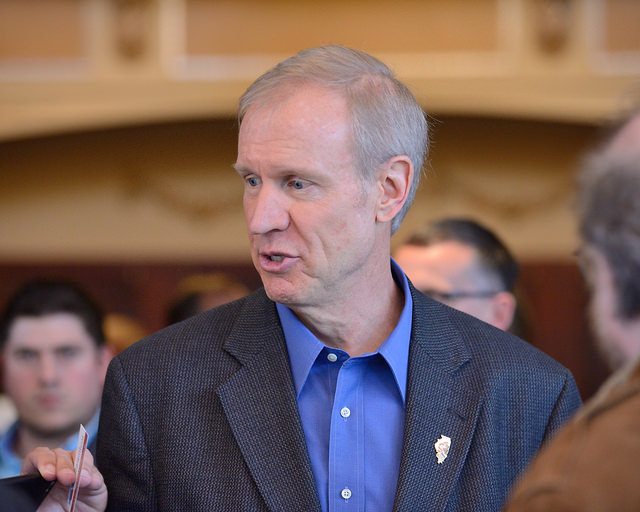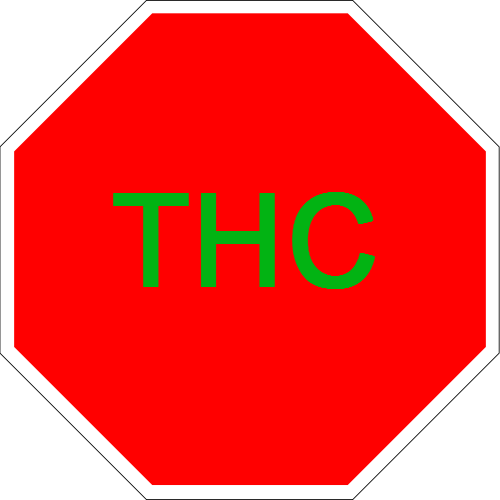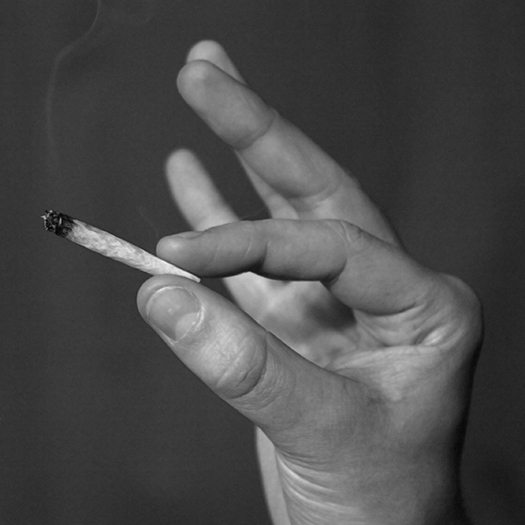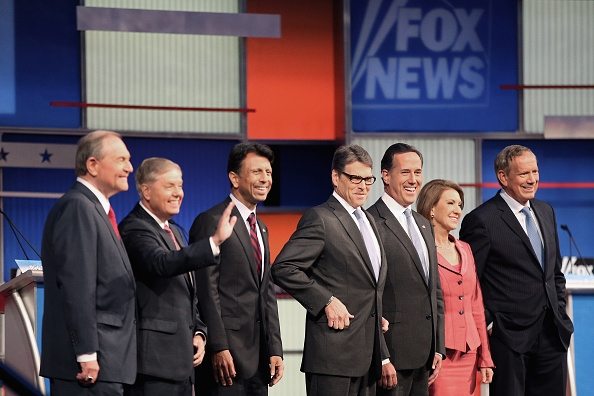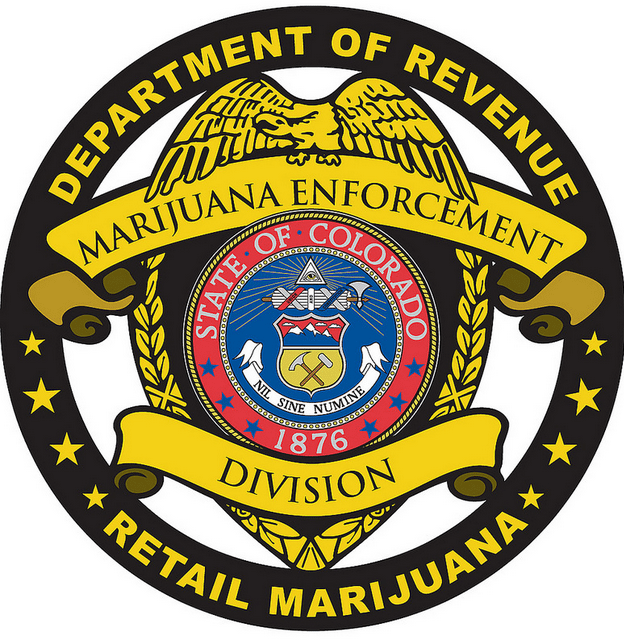Famed neurosurgeon, best-selling author, and former FOX News contributor Ben Carson announced in May that he would be running for the 2016 Republican presidential nomination. After catapulting to mainstream attention in 2013 by using his position as keynote speaker at the annual National Prayer Breakfast to rail against political correctness, “moral decay,” and the Affordable Care Act, all while President Obama sat two chairs away, he’s seen his standing steadily rise on the political right–especially with the Tea Party set–and is experiencing a surge after the first GOP debate held earlier this month. The famously soft-spoken doctor has used his newfound platform to speak words that resonate loudly, painted with analogies seemingly designed to raise the blood pressure of progressives everywhere: Comparing gay marriage to bestiality and pedophilia? Check. Obamacare to slavery? Check. The IRS, political correctness, and modern America to Nazi Germany? Check, check, and check!
On most issues held dear by primary-voting Republicans, Ben Carson sits right at the sweet spot. His “On the Issues” page pushes all the right buttons: Abortion, balanced budget, Common Core, Obamacare, patriotism, Putin, gun rights, and Israel. The Seventh-day Adventist makes frequent references to his faith and seems to sincerely believe that it is God’s calling that’s led him from keynote speaker at the National Prayer Breakfast two years ago to second-place–just behind Donald Trump–in the current GOP primary race.
But where does this mild-mannered Tea Party hero stand on some of the most important affairs facing America today in the drug war and marijuana legalization? His official campaign platform is silent on these issues, but lucky for us the man himself has not been so quiet as he’s made the media rounds. So, while the candidate hasn’t put forth any drug policy per se, we can get an idea of what a Carson presidency would look like for marijuana consumers by examining his public comments.
He was especially outspoken last year at the dawn of Colorado’s extremely successful recreational cannabis legalization effort. The day after recreational sales went into effect, he took to FOX News to say that, while “Medical use of marijuana in compassionate cases has been proven to be useful,” the recreational use of cannabis is not “something we really want for our society,” adding that, “you know, we’re gradually just removing all the barriers to hedonistic activity.”
Later that same month, Carson spoke with NewsMax’s Steve Malzberg and claimed that marijuana smokers “can have flashbacks months and years after usage, [and] that a lot of their abilities can be impaired at the time of use.”
In July of 2014, Carson made some of his more outrageous comments in an interview with World News Daily, implying that what he sees as a failed and scandal-plagued Obama presidency is a result of the President’s admitted marijuana use, and stating that cannabis has a “deleterious effect” on society:
“When we do things like have our Attorney General and our president say ‘Yeah, marijuana’s not that bad. You know, I used and look how I turned out!’ Well, that’s the problem [laughter]. And you know we have clear scientific evidence that the use of cannabis in the developing brain is detrimental and the brain is developing until your late 20s. Well who are the people who are using it? You know, teens and early and mid-20s. There’s gonna be consequences for that. Why are they not talking about that? Why are we more concerned about how much sugar there is in the beverage that you’re drinking. Not that that isn’t important. But we need to look at the things that are truly having a deleterious effect on our society and stop the subterfuge…We do so many things to distract people.”
Earlier this year, speaking at the Western Conservative Summit in Denver, Carson provided the most insight so far into how he would treat marijuana should he be elected President of the United States. There he promised to enforce federal prohibition laws while buffering a pharmaceutical industry that would derive, synthesize, and bottle-up your cannabidiol and THC, then sell it to you at a 2,000% mark-up, rather than have you purchase the whole flower at your local dispensary:
“There are medicinal uses for the active ingredients of marijuana. However, we must also look at the fact that regular exposure to marijuana in the developing brain has been demonstrated definitively to result in decreased IQ. And the last thing we need is a bunch of people running around with decreased IQ. So, I think we have to take both those things into account. There are ways that you can create pills and ointments and things like that that are used for medicinal purposes while still enforcing federal law. [Yes I would probably enforce the federal drug laws in states like Colorado], providing the use, the appropriate use of medical marijuana.”
It should shock nobody that yet another mainstream presidential candidate is standing firm for the status quo, especially in an electoral system funded heavily by corporate interests strongly invested in the trillion dollar War on Drugs. That doesn’t make it any less discouraging to witness a respected and groundbreaking medical doctor use his influence to peddle half-truths and outright lies about cannabis. The fact is that the results of studies on the effects of marijuana use on the teenage brain are anything but “clear.” In fact, a famous 2012 Duke University study that purported to show a link between lower IQ rates and teenage use was thoroughly discredited for using flawed methodology and premature “causal inference.” Speaking of causal inference, let’s address that whole “gateway drug” thing: While studies have shown that some marijuana users do go on to “hard” drugs, this seems to be a matter of correlation rather than causation. In fact, alcohol and nicotine use are better indicators of future hard drug abuse than is cannabis consumption. Psychology Today debunks this myth concisely here:
Many people mistakenly believe that marijuana use precedes rather than follows initiation of other illicit drug use. In fact, most drug use begins with alcohol and nicotine before marijuana, making nicotine and alcohol the two most common drugs of abuse. Evidence indicates marijuana is usually not the first substance abused before more dangerous illicit drug experimentation.
A study published in the peer-reviewed Journal of School Health has concluded that the theory of a gateway drug is not associated with marijuana, but rather one of the most damaging and socially accepted drugs in the world, alcohol. The findings from this investigation support that alcohol should receive primary attention in abuse prevention programming, since the use of other substances could be impacted by delaying or preventing alcohol use.
In fact, studies have found that marijuana is the opposite of a “stepping stone,” and is rather a terminus drug, or “exit drug,” that helps those addicted to other substances “reduce or eliminate their use of more harmful drugs by easing withdrawal symptoms.”
To give credit where it’s due, Ben Carson’s stance on medical marijuana is superior to that of his GOP opponent Chris Christie who sees it as “a front for legalization,” but miles behind rivals like Carly Fiorina who, while not a medical doctor, takes a much more reasonable and scientific view of marijuana’s benefits and legalization.
Photo Credit for Featured Image: DonkeyHotey via flickr Creative Commons

